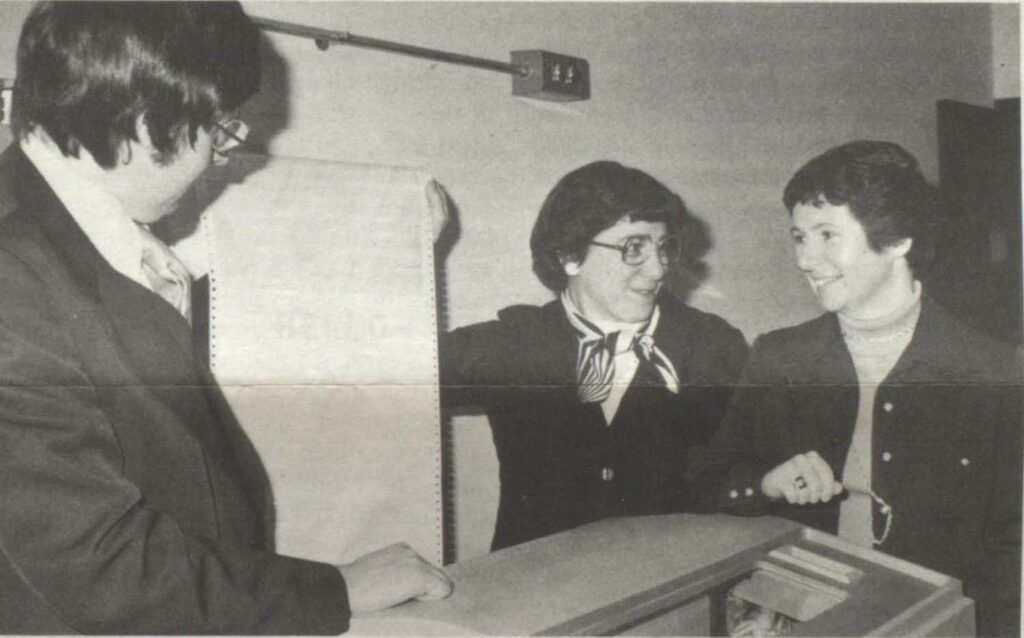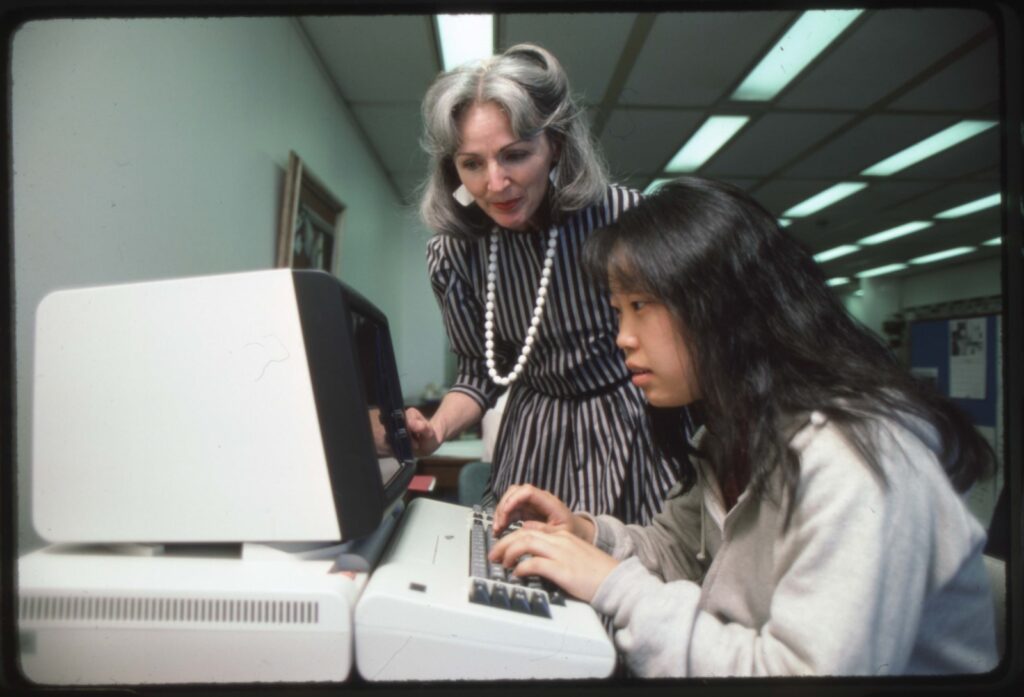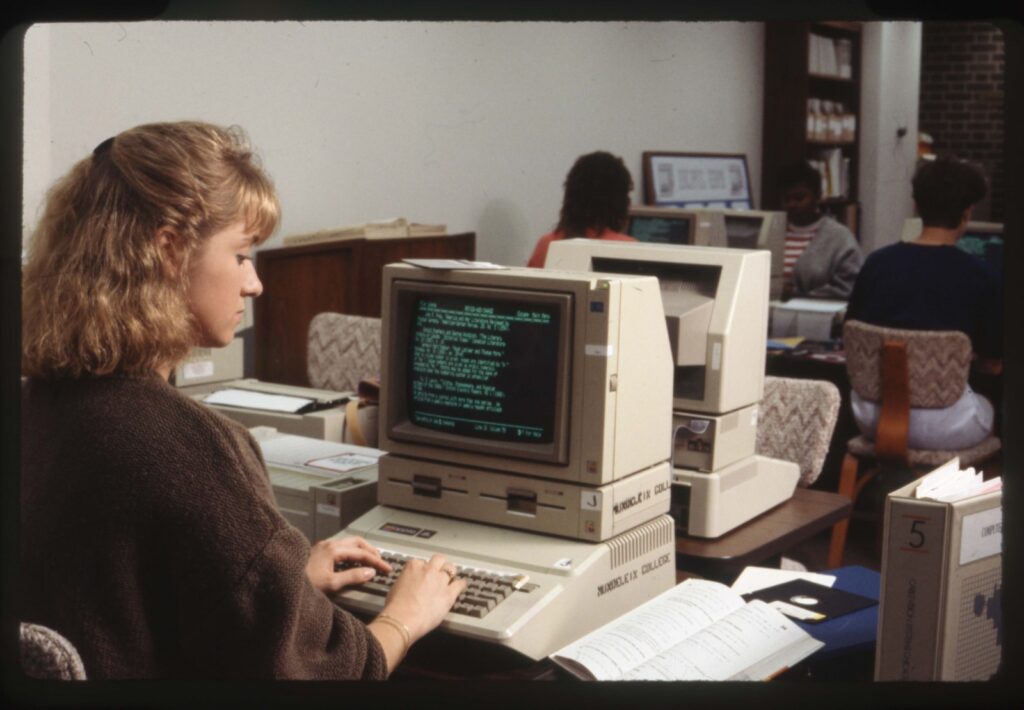
After renting a computer system for three years, Mundelein College* finally purchased its very own computer in February 1977. Mundelein Now, a combination college events/alumnae newspaper, announced the news with pride. This first computer was used to transfer student data from the admissions office to the registrar once a student was enrolled. After graduation, the information would be transferred to the alumnae office. This replacement of physical records helped eliminate potential duplicates and made making changes to student records easier. It also allowed professors to access accurate lists of students registered for their classes. The lone computer was shared not only by admissions, the registrar, and the alumnae office but by the financial aid department and business office, where it would handle payroll, accounts payable and receivable, the general ledger, and personnel records. This paved the way to increased computer usage at Mundelein.

In 1980, the Music Department purchased an Apple II computer in order to offer computer-assisted instruction (CAI). The computer was used to teach students who had little musical experience the fundamentals as well as offer training and homework correction to students with more knowledge. Although today it is hard for students to complete any homework without computer access, in 1982 it was a novel idea. Students could receive feedback on their work and recognize their level of understanding prior to class, leading to more productive class time. Both faculty and students had high hopes for the future of computer-assisted instruction at Mundelein.
In the fall of 1982, Mundelein added a Computer Science minor. Although the college had offered programming classes for several years, it was the introduction of college-owned equipment that made a new program prudent. The Mathematics department purchased three more computer terminals.

These articles in Mundelein Now assured the reader that new technology was friendly and not to be feared. Testimony from Sisters and faculty assuaged possible fears about the new machines. Margaret Armstrong, BVM, head of payroll, was quoted, “I never used a computer before, but I’ve had no trouble.” The writer of the Now article on the emerging Computer Science minor, Marjorie Stinespring, associate professor of mathematics, reported, “Recently a colleague asked me, ‘Is it true that within five to ten years I’ll be using a computer?’ Sensing her fear, I answered with another question: ‘Do you drive an automobile?’ My colleague does indeed drive a car, even though she knows very little of the mechanisms by which it runs. She is not unnecessarily afraid of a car, since it is a common familiar tool. But her ancestors, who were no less clever than she, were terrified at the prospect of operating such a complicated machine.” Mundelein was ready to embrace technology and all of the new options it offered.
* Mundelein College, founded and operated by the Sisters of Charity of the Blessed Virgin Mary (BVM), provided education to women from 1930 until 1991, when it affiliated with Loyola University Chicago.
Sources: Mundelein Now, Mundelein College Paper Records: Digitized files mc_now_0006, mc_now_0014, mc_now_0018, mc_now_0025.
Mundelein College Photograph Collection: Digitized files: mc_library_lrc_0018, mc_library_lrc_20.

Brooke is a first-year student in the Public History MA at Loyola University. She has a BA in History from Macalester College in St. Paul, Minnesota. Her research interests include medical history and women’s history. Her non-history hobbies include quilting, hiking, reading, and her pet snails.
Loyola University Chicago’s Women and Leadership Archives Blog is designed to provide a positive environment for the Loyola community to discuss important issues and ideas. Differences of opinion are encouraged. We invite comments in response to posts and ask that you write in a civil and respectful manner. All comments will be screened for tone and content and must include the first and last name of the author and a valid email address. The appearance of comments on the blog does not imply the University’s endorsement or acceptance of views expressed. Questions? Please contact the WLA at wlarchives@LUC.edu.
